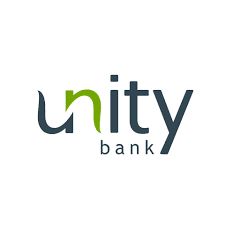The Nigerian banking sector is on the cusp of yet another major consolidation as Providus Bank Limited prepares to absorb Unity Bank Plc under an approved scheme of merger. This move, long anticipated by market watchers, is part of a broader wave of recapitalisation and realignments reshaping the industry in response to regulatory demands and financial pressures.
According to the scheme of arrangement made public, Providus Bank will emerge as the surviving entity in the transaction. This means that Providus will retain its corporate identity, while Unity Bank’s entire share capital will be cancelled. In practical terms, all assets, liabilities, and operations of Unity Bank will transfer to Providus, marking the end of Unity’s existence as a standalone institution.
Shareholders of Unity Bank have been presented with two options under the terms of the deal. The first is a straightforward cash payout of ₦3.18 for every share they hold. The second, more forward-looking option, is a share swap arrangement that offers 18 Providus shares for every 17 Unity shares. This structure gives Unity shareholders the flexibility to either exit the bank completely at a defined price or participate in the future growth of the enlarged Providus.
The next critical milestone in the process is the court-ordered meeting of Unity Bank shareholders, scheduled to take place on September 26, 2025, at the Olusegun Obasanjo Presidential Library Hotel in Abeokuta. At this meeting, investors will vote to either approve or reject the scheme. If the proposal secures their consent, the merger will then proceed to court sanction and final regulatory filings before becoming effective.
The Central Bank of Nigeria (CBN) has already signaled its support for the transaction. In line with its mandate to safeguard financial stability, the apex bank approved a financial accommodation package reported by several market analysts to be around ₦700 billion to ease the transition and ensure depositors’ funds remain secure. This intervention underscores the regulator’s commitment to consolidating weaker institutions into stronger, better-capitalised entities as the sector braces for recapitalisation requirements.
For Unity Bank’s long-suffering shareholders, the scheme represents both an exit and a new beginning. The cash option provides certainty and liquidity, while the share-swap allows them to continue as stakeholders in what many expect will be a more competitive Providus Bank. Customers and employees also stand to benefit from the stability and brand continuity the deal promises, as Providus assumes responsibility for Unity’s obligations.
Beyond the immediate parties involved, the Providus–Unity merger has wider implications for the Nigerian banking industry. It signals a new wave of consolidation, driven not only by regulatory capital thresholds but also by market realities. As smaller, struggling institutions merge into stronger ones, the sector may become leaner but more resilient. The hope is that this translates into improved customer service, better risk management, and more robust financial intermediation to support Nigeria’s economy.






















































